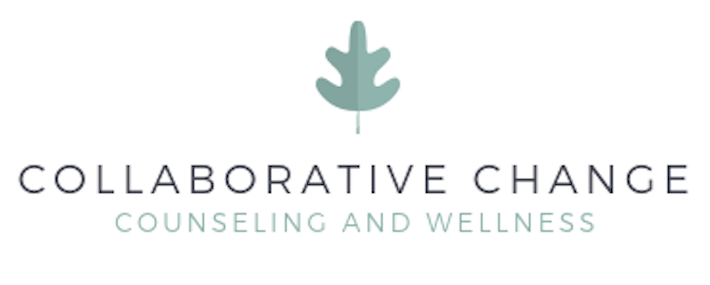What is Obsessive Compulsive Disorder?
Obsessive Compulsive Disorder, commonly called OCD, is a mental health condition that occurs when someone gets caught up in a cycle of obsessive, intrusive internal experiences and compulsive thoughts and/or behavior. Someone with OCD may have recurring unwanted images, thoughts or impulses that lead to intense psychological and emotional distress. These obsessions then often lead to recurring habitual behavior that is intended to either stop the intrusive experiences or change the distressing feelings that come from the obsessions.
The experience of OCD can be very isolating, as individuals who struggle with OCD often recognize that their thoughts and behaviors do not entirely make logical sense. And yet, they feel compelled to respond to those thoughts as if they absolutely are true and thus need to be addressed. While anyone may have a moment of obsessions and/or compulsions, a diagnosis of OCD occurs when the experience of obsessions and compulsions take up a lot of time in a day (more than an hour) and cause intense distress or interferes with daily functioning.
What is an Obsession?
An obsession is not limited to just thoughts. An obsession can be thoughts, images, or impulses that happen over and over again and feel outside of the individual’s ability to control. Usually, these obsessions are accompanied with uncomfortable feelings like disgust, fear, doubt, or a sense that things have to be done in a “just right” way. Trying to manage these obsessions and feelings interfere with the quality of life of someone who has OCD and they occupy a lot of time that could be devoted to other things of value in their life.
What are Common Obsessions in OCD?
Common obsessions in OCD include:
- Contamination obsessions – the fear of being in contact with perceived contaminating substances or things
- Seuxal obsessions – unwanted intrusive images or thoughts related to sex
- Violent obsessions – fear of acting on an impulse to harm oneself or others
- Religious/Moral obsessions (Scrupulosity) – Excessive concern with morality and fear of offending God, committing sin, or making a mistake
- Identity obsessions – excessive concerns with sexual or gender identity
- Responsibility obsessions – fear of harm coming to others due to one’s own negligence or mistake
- Perfectionism-related obsessions – excessive concern related to order, symmetry, performance, or remembering/knowing
What is a Compulsion?
Compulsions are repetitive thoughts or behaviors that someone with OCD uses to neutralize, counteract or eliminate their obsessions. While compulsions are acknowledged as temporary fixes, they are used to cope with the distressing effects of obsessions. Avoidance of situations that may cause obsessions can be a form of compulsion.
In order for a behavior or thought to be considered compulsive, it must feel like something the individual is driven to do and would rather not have to do, as opposed to something that brings them satisfaction. For example, just because you like your room clean doesn’t mean you have a compulsion to clean your room unless you feel that cleaning your room is necessary to prevent something terrible happening or to escape overwhelming anxiety and/or the presence of obsessions.
What are Common Compulsions?
Common compulsions in OCD can include:
- Washing and cleaning
- Checking that you did not harm others or yourself or that nothing terrible happened
- Repeating activities or movements a certain amount of times or until it feels “right”
- Mental rituals, like reviewing events to prevent harm, praying to prevent terrible consequences, counting, “cancelling” or “undoing” by replacing something “bad” with something “good”
- Arranging or ordering until it feels right
- Seeking reassurance by confessing, telling, or asking questions
- Avoidance of situations that may lead to obsessions


Treatment for OCD
Treatment for OCD will most likely involve a type of Cognitive Behavioral Therapy (CBT) called Exposure and Response Preventrion (ERP) and/or medication.
Exposure and Response Prevention is a therapeutic process where you gradually and systematically expose yourself to feared thoughts, images, objects and situations that tend to prompt obsessions. The response prevention aspect of ERP is refraining from engaging in a compulsive behavior once an obsession begins.
In the beginning you will be guided through exposures and response prevention by your therapist and this typically occurs in an outpatient setting. Later, you will eventually be able to do your own ERP exercises to help manage symptoms. The goal is for these exercises to help retrain your brain to no longer experience the obsession as a threat.
In additional to individual therapy, some people benefit from more intensive therapy, like an intensive outpatient program (IOP).
Parents of Children and Adolescents with OCD
Having a child with OCD can be disorienting and exhausting for parents. Your child may frequently and repetitively seek you out for reassurance (“do you think I will die from this stomach ache”?) and you may find yourself providing the same answers again and again (“no, it is just a virus”) with no apparent change in their distress. You may watch your child engage in reptitive sometimes bizarre behavior like tapping, counting, washing, and organizing and feel unable to help them stop. You may fear that you are unintentionally accommodating the disorder and potentially making it worse. You may experience frustration and annoyance with their inability to “see reality” or “just stop” and then struggle with guilt and the thought that you are not a good or patient enough parent.
Parents and families as a whole are severely affected by the demands of OCD. Research suggests that how families respond to OCD can help or harm the recovery process. For these reasons, it can be important that parents seek out their own support. That support can come in many forms and may be individual therapy, parent guidance, education, or group support. Attending to your own support network is important. Reach out to us today to see how we may be able to help.

Contact Us Today to Talk
We would love to find out what we can help you with. Call 203-745-0733 or email for consultation.

